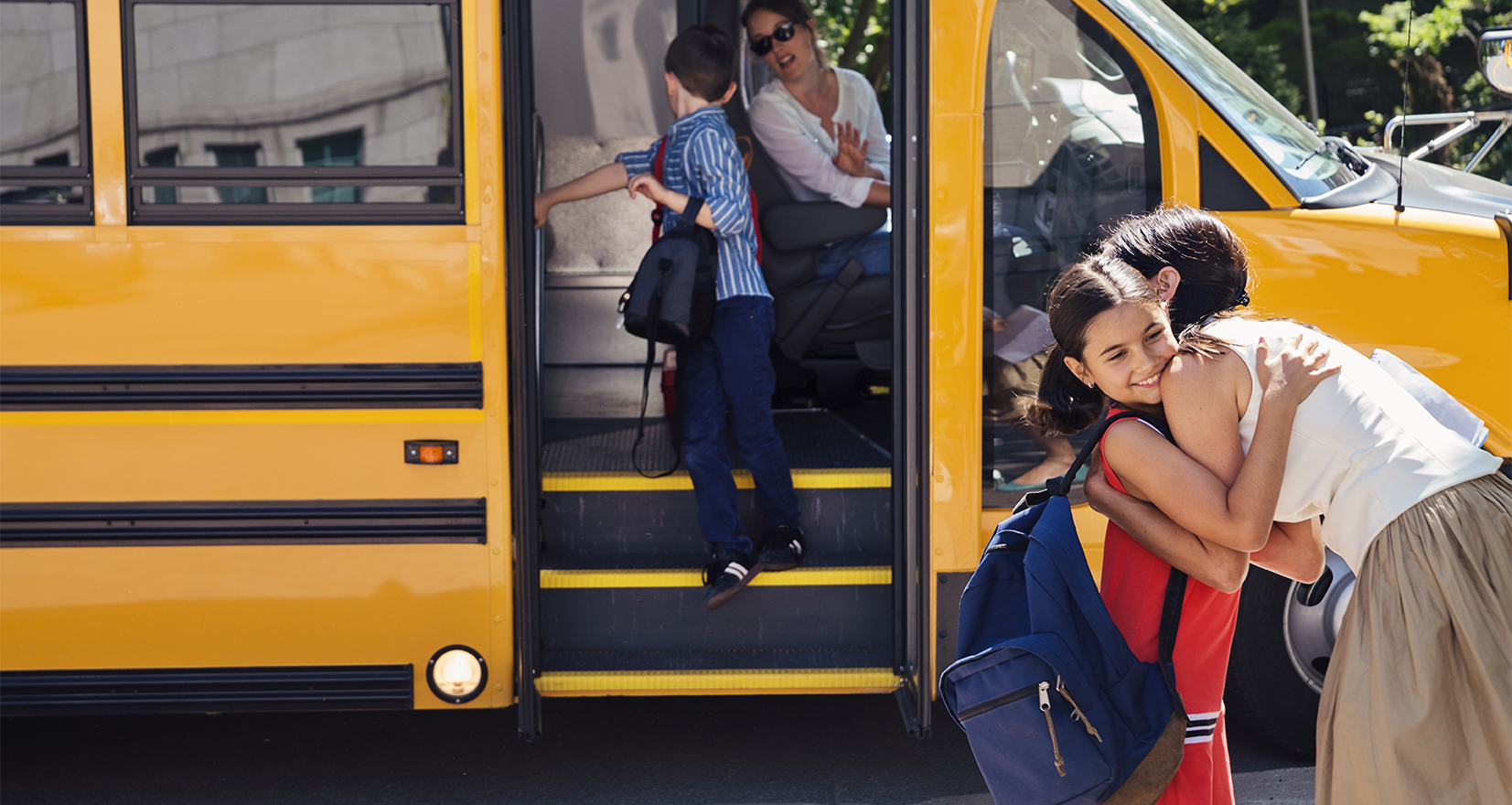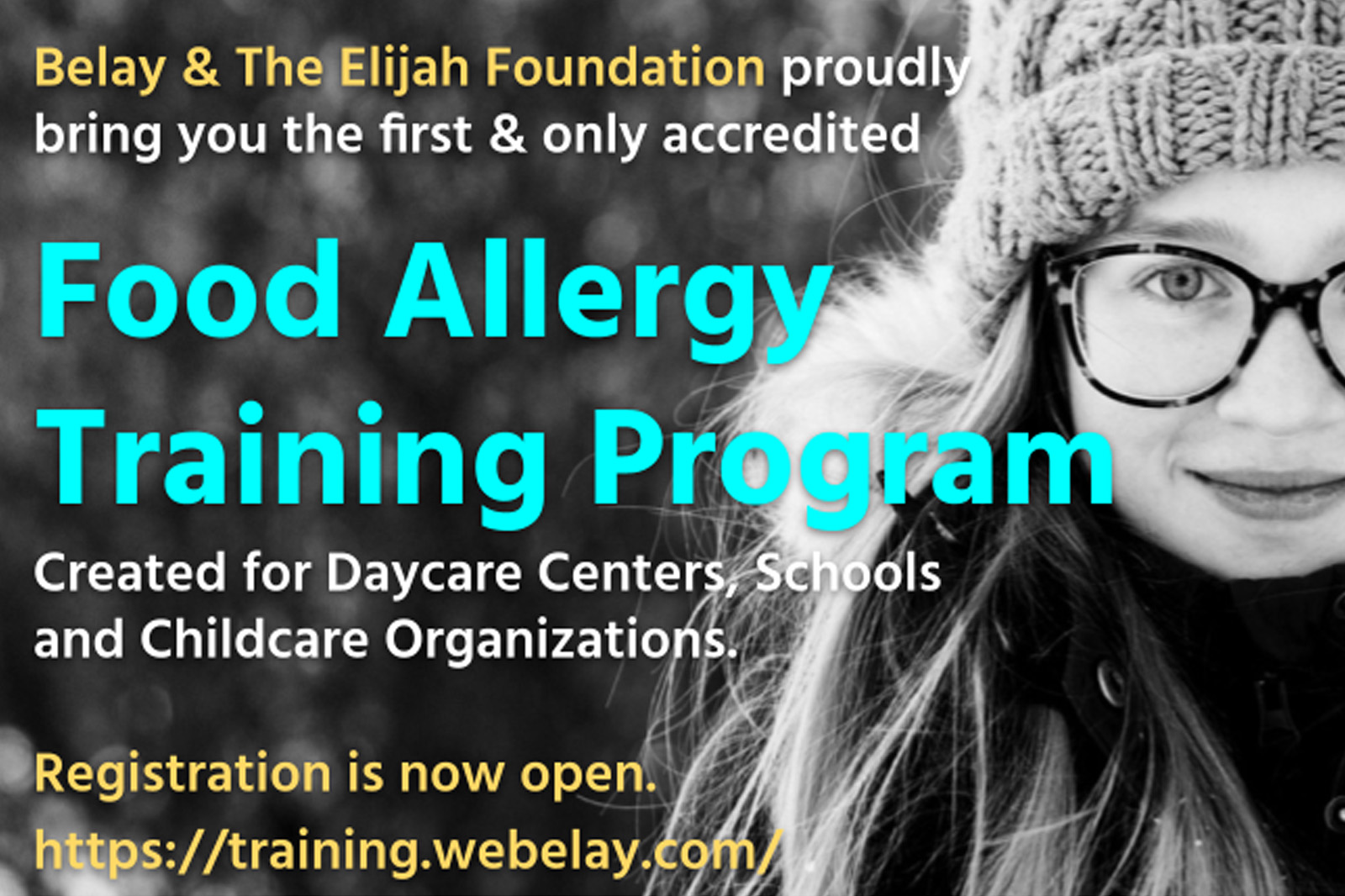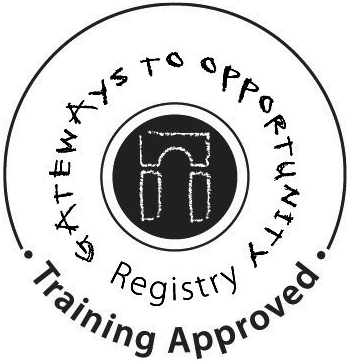For many families, including my own, last week marked the start of back to school. And like so many other parents who have children with food allergies, alongside the excitement of a fresh start, the unknown of a new year, anxieties old and new resurface as we once again transfer care of our children to the place where they’ll be spending a majority of their time.
There are new teachers, perhaps new cafeteria staff, a new menu, new extracurriculars. In some schools, older kids are allowed to start going out for lunch for the first time. Whatever it may be, whatever changes have taken place from one year to the next, something is new and the communication between parents and the school has to start all over.
Layered over the need, however, is our hesitation to do so. As crazy as it may sound to some, many of us parents feel inhibited about unloading our children’s food allergy information onto others. I know I do. We feel we are burdening others and fear that we are perceived as overly concerned about something others believe to be relatively benign. Yet my fellow food-allergy parents know there’s nothing benign about food allergies, and therein, in that perceived discrepancy lies the problem. Food allergies are still so misunderstood, dismissed, and minimized, making it that much harder for parents to advocate for their children. People often assume it’s a choice, a lifestyle preference, a product of helicopter parenting. It’s not. It’s about life and death.
I am continuously working on shedding this inhibition and worrying less about what others think as I try to advocate for, and protect my son. And while building those muscles, I hope to help others do the same. Below are my suggested actions that parents can take when sending their food-allergic children to school. If you find any of these helpful or have others to add to this list, please let me know. I’d love to learn as much as I hope to impart.
Communicate. Communicate. Communicate…with Everyone.
Speak with your child’s teacher, the school nurse, admin, and principal. Make sure that they are all on the same page regarding your child’s emergency plan. Don’t be afraid to ensure that all the staff are familiar with how to use an Epinephrine-Auto-Injector, with symptoms of an anaphylactic reaction and when to inject. Don’t assume their previous training has made them comfortable with the information. They may be more anxious than you realize. Empower them.
Throughout the year different staff at the school will be responsible for your child. Don’t forget about the individuals who watch your child during the extracurriculars. Do you drop your child off early before classes start? Do you know the teacher who is watching the kids during those early hours? Does your child stay for aftercare? Does he/she stay for the chess club? Soccer practice? It would be a great idea for parents to educate these folks as well.
My husband and I also take the time to talk to the cafeteria staff. We make sure they know our son’s face and name and exactly what his allergies are. Throughout the year we go out of our way to thank them and show them our gratitude for helping to keep him safe.
Substitute teachers – When I was interviewing a lovely mom a few years ago, she pointed out to me something I had never considered: The school’s lack of communication about food allergies with the substitute teacher. Who is informing the sub-teachers of your child’s emergency plan? I learned it was no one at our school. This mom also learned that she was never informed when there was a substitute teacher so she wasn’t even given an opportunity to come into the school and talk to the sub teacher herself. She worked closely with the principal to put a better plan in place to ensure parents were better informed and that the information was passed on to the teacher. Don’t assume that your child’s emergency place is communicated to substitute teachers.
Don’t be afraid to check in with school staff mid-year. They may forget the protocol and appreciate the reminders, especially when you show your appreciation to them.
All this communication may sound like a lot, so spread it over the first week or two of school. I’ve learned that as long as I am comfortable with the information and don’t feel overwhelmed by it, I can communicate it clearly to others.
Emergency Plan Templates:
https://www.foodallergy.org/sites/default/files/migrated-files/file/emergency-care-plan.pdf
https://foodallergycanada.ca/wpcontent/uploads/AnaphylaxisEmergencyPlanwithEpiPen2015.pdf
Beyond the Classroom – Don’t forget the Bus Driver and the Field Trips.
My kid’s bus driver once told me that during her CPR course, she was briefly trained on how to use the Epipen but could no longer remember how to use it and wished she had a sign on her bus with instructions. See? Despite being trained, people forget. And while some bus companies and drivers don’t allow kids to eat on the bus, other are less rigid about this. Regardless of what they say, the drivers can’t supervise every kid on the bus while they are driving and nothing is going to stop a kid at the back from pulling out his Pb&J sandwich on the way to school. Guess who needs to be trained and informed of your child’s emergency plan. Ya, it’s the bus driver.
Field trips still make me the most anxious, I’m not going to lie. Everyone is out of their routine and exploring new terrain. Kids are split up into smaller groups sometimes with new teachers or unfamiliar parents. The inherent nature of a field trip – the hands-on learning experience – often invites exploration of new sounds and new tastes. My son’s school starts off every year now with a 2-day overnight trip to foster leadership, teamwork, and bonding. Love the idea but dread the trip. Short of hiding in his duffle bag, here are some of the things I do to protect him:
• In advance of the trip, I talk with school staff about the food and snacks that they will be eating throughout the trip. I have asked to see the menu and ingredients.
• Don’t forget to inquire if the kids will be eating during transportation there and back.
• Find out who is supervising your kid during the trip. If you feel it would help, speak directly to that person.
• Call the venue ahead of time and inquire about the food and snacks being served. Make sure they know about cross-contamination and how to prepare food for people with food-allergies.
• In the US, 504 plans can include provisions for field trips.
• Talk or role play with your child. Teach them to self-advocate. Always prepare them but be careful not to make them overly anxious
Related Readings:
https://www.allergicliving.com/2016/08/29/field-trips-food-allergies-staying-safe-beyond-classroom/
https://foodallergycanada.ca/allergy-safety/at-school/bus-field-trips/
Make sure Epinephrine is accessible to your child and to all the staff in the school.
Know where epinephrine is kept in your child’s school. It should be accessible and not locked away in a drawer where no one can access it in an emergency. Make sure the teachers throughout the school have been trained on how to use them properly and that they all know where the pens are located. Over the years I’ve met with many families who have had to fight to get the school to refrain from keeping the epinephrine locked away in the file cabinets and got them moved into visible places where they more accessible. Some schools, often spearheaded by the incredible moms in this community, have made their own Epipen stations and have hung them throughout the school hallways. Our wonderful school nurse, puts Epipens with clear instructions in all the CPR kits, hung up on the walls throughout the school.
Empower and educate your child.
In the end, there is no greater protector of your child than him or herself. Teach them young to be persistent, to always ask about the ingredients, to know which foods to avoid, to know the symptoms of an allergic reaction, and eventually to know when to self-inject. The more informed and prepared your child feels regarding his/her allergies and what’s to done during a reaction, the less anxious he or she will be. When you observe them advocating for themselves, let them know how incredibly brave they are and how proud they should be of themselves. I also think that when kids reach the age of 12 years old, it’s a good idea to start teaching a few of their best friends about anaphylaxis and how to inject. I’ve heard of several heroic kids who have injected epinephrine to save their friend’s life during an anaphylactic reaction.
Related Readings:
https://www.allergicliving.com/experts/when-can-a-child-self-inject/
How will your child carry their Epinephrine Auto-Injector?
Have a discussion with your child about carrying or wearing their EAI on them. Some kids wear them in pouches like this cool Nike running belts, others leave them in their backpacks. Whatever you as a family decide, just be sure that the EAI is accessible and never locked away in their locker somewhere.
Know your child’s Rights.
United States: In the US, under Section 504 of the Rehabilitation Act of 1973, food allergies can be considered a “disability,” making families eligible for a 504 plan. A 504 plan is a written management plan, created by the school and parents, which outlines how the school will address the individual needs of a child and will ensure how he or she will be able to “participate safely and equally alongside his/her peers during all normal facets of the school day.”
Canada: Sabrina’s Law, passed in Ontario and used as a precedent worldwide, is a legislation created to keep food-allergic children safe at school. Canada, please see this link that outlines food-allergy policies by province.
Related Reading on 504 plans for the U.S.:
https://www.foodallergy.org/education-awareness/advocacy-resources/section-504-and-written-management-plans
https://www.allergicliving.com/2014/11/20/7-mistakes-parents-make-when-advocating-at-a-504-meeting/
Advocate. Food Allergy Kids should not be Excluded.
Most people wouldn’t think to exclude another child and yet somehow food-allergic children are routinely isolated and left out. Many parents feel indignant at not being able to send their children to school with peanut butter or that schools have banned those revolting cupcakes for the kids’ birthday parties. I mean, what parent still wants their child to eat sugar-filled cupcakes for every single birthday anyway? Not I. In some schools, food-allergic children are still required to sit at “the allergy table” or are left out of other classroom events that involve food. Schools would never discriminate against another child based on race or disability and yet in some schools, it still seems ok to do so when it comes to food-allergic children.
I feel so terribly grateful and lucky to be sending my son to a school where food is totally absent in the classroom and where sharing food is forbidden. Kids are only allowed to eat in the cafeteria and while birthdays are acknowledged, food can no longer be brought in to help celebrate. Are the kids crying about their longed-for cupcakes? Do they feel deprived? I don’t even think they have noticed. If you are not as fortunate to be sending your child to a school with such compassionate rules, speak up and help your school recognize that like all the other children, your child does not deserve to be discriminated against nor excluded.
Bullying
One-third of food-allergic children are bullied due to their allergies. Really? In addition to the emotional effect it has on a child, one survey found that when children received unwanted attention about their food allergies they became less likely to self-advocate about their allergies and had greater difficulty managing them. Speak to the school and principal to make sure there is a culture of safety and zero tolerance for this.
Related Articles:
https://www.allergicliving.com/2014/06/24/fun-doesnt-need-food-excluding-the-treats-not-the-child/
https://www.foodallergy.org/sites/default/files/2017-09/nonfood-treat-ideas.pdf













